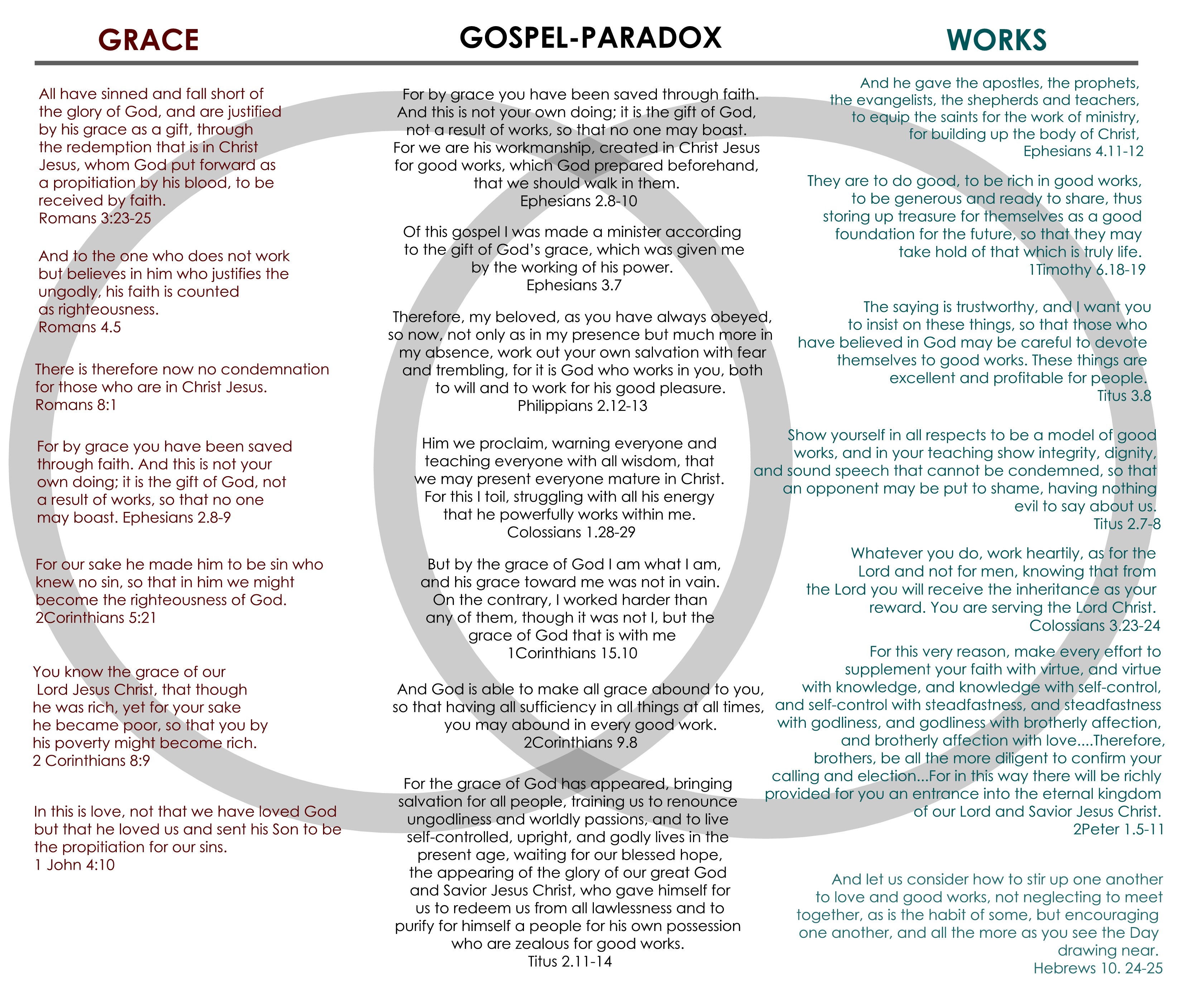The trouble with talking about sanctification is that our flesh always gets in the way. Even if we know that the ACT of God’s grace (justification) has secured our union with Christ, we wrongly believe that our communion with Christ (sanctification) is a work dependent upon ourselves. Without question, there is an inescapable tension between justification and sanctification; between our position of holiness and our practice of holiness; between faith and works.
the ACT of God’s grace (justification) has secured our union with Christ, we wrongly believe that our communion with Christ (sanctification) is a work dependent upon ourselves. Without question, there is an inescapable tension between justification and sanctification; between our position of holiness and our practice of holiness; between faith and works.
12 Therefore, my beloved, as you have always obeyed, so now, not only as in my presence but much more in my absence, work out your own salvation with fear and trembling, 13 for it is God who works in you, both to will and to work for his good pleasure. Philippians 2.12-13
How does it all happen? It is all God? Is it all me? There are two ditches on each side of the road. In one ditch is the “Let go and let God” people who believe they have ZERO responsibility to do anything regarding their behavior—I prayed the prayer—I’m saved…God will do the rest magically. On the other side of the ditch are those people who believe “It is all up to me” and they have 100% responsibility to change their thoughts, feelings, and behavior which results in a pendulum swing between pride and despair depending on how well they do. The question becomes, where does God’s sovereignty start and man’s responsibility begin when it comes to changing our attitudes and behaviors?
I recently preached a rather unsatisfying sermon on sanctification. Though I know Jesus was proclaimed, I am hopeful that the gospel was preached—there is a difference. I have learned that, even when grace is preached, the flesh has a tendency to speak and to hear works. Even if Jesus is said to have done everything, our flesh screams to do something.
To be clear then, I believe that the righteousness we have received is Jesus’ not our own. I believe, therefore, that God graciously (but painfully so) God takes us through a perpetual RENOVATION process that ends either in our death or his 2nd coming. As sinners we were an old abandoned meth house destroyed by squatters. Through the death and resurrection Jesus, our ownership has changed and the new caretaker intends to not only clean it but fill it. He not only wants to make it livable, more than that, he wants to make it beautiful. Why? In order to increase three things: grace, gratitude, and glory to God. We are redeemed works in progress, slowly becoming in practice what we are in position.
This is a gospel-powered renovation. This is more than a little paint and washing the windows. In order to look like Jesus there will be ADDITIONS, SUBTRACTIONS, and MODIFICATIONS. We are, individually and corporately, a redeemed work in progress. It would be appropriate to put an UNDER CONSTRUCTION sign on our front door. As a work in progress, we are not complete. That is not the same as saying we are deficient, because God’s Spirit has given us all of the materials are there to complete us. It does mean, however, that our faith has unfinished areas, exposed areas, weak areas, even ugly areas. But there is a sense that the slowly, over time, our faith, and our faith family, will take on the shape, beautify, and function it God planned for us with all grace, gratitude, and glory.
This kind of renovation occurs ONLY as we behold the glory of the Christ. As we do this, His glory mysteriously but decisively transforms us into the same image of Glory from one degree to another (2Corinthians 3.18). How do we behold God’s glory? God gave us both desire and means to pursue His glory—which is His love in Christ. We read the Bible to learn about God’s love. We pray to respond to God’s love. We gather with God’s people to experience God’s love. We serve to share God’s love. And God, by His grace, sends trials refine us with His disciplining love. These are God’s means of grace through which we grow into who we already are in Christ.
In summary, as believe that Jesus loves us just as we are, by grace, we become who we actually should be.



